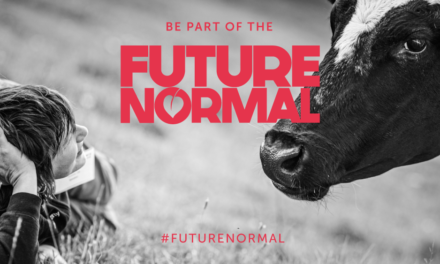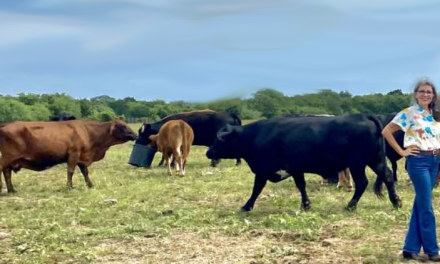On June 17, the USDA Dietary Guidelines Advisory Committee met to draft its recommendations for our nation’s 2020 nutritional guidelines, updated every five years. The final draft will be referred to the USDA at the end of the month, but the bits and pieces released indicate a status-quo stance on animal products. Dr. Milton Mills, M.D., a member of the American Vegan Society speakers bureau, has provided testimony to the Committee on multiple occasions, and co-authored the 1999 Physicians Committee for Responsible Medicine (PCRM) report on Racism in the Dietary Guidelines. We checked in with him on how the USDA guidelines may, either unwittingly or intentionally, have a racist effect on nonwhite populations. A key issue is lactose intolerance, a default condition of the human body that affects most people who are not White. (Most White people have a mutant gene blocking the effect.) This is a condensed (and edited for brevity) excerpt from a conversation that will appear in the next issue of American Vegan magazine.

Dr. Milton Mills.
AVS: Having charged yourself with getting best nutrition info across to the USDA committee in previous testimony, do you see evidence that they have taken this perspective into account, they did something taking off from that, or is it more like banging your head against a wall?
Dr. Mills: In my opinion, without question, the past testimony of groups like PCRM and Center for Science in the Public Interest and other plant-based organizations, as well as other physicians and researchers who recognize the importance of moving away from an animal-food-centered diet, has had a tremendous impact on the guidelines committee. Back when I was in residency in the mid-90s, we were still talking about the “four food groups” [half of which were animal products], and then went from that to the “food pyramid,” and then finally to the “food plate.” So each revision has successively diminished the role that animal products and animal tissue has claimed in the recommendations of the committee. [But] because of the aggressively regressive attitude and focus of the current administration, and their anti-science bent, I am extremely concerned that they won’t care what the science says. They seem determined to try and turn the clock back back to the era when people ignored science and did what they wanted to the benefit of industry operators irrespective of the science. We’ll have to see what actually happens.
AVS: Some of that ignoring of science has been evident in their pushing of cow’s milk for everyone. One might find an inherent racism in that recommendation of something with an ingredient that the default human body (most adult humans around the world) is not built to deal with, and because White people are the exception and are in power, we get to pretend that phenomenon of lactose intolerance is insignificant, and I believe you’ve critiqued that as structural racism, right?
Dr. Mills: Yes, I will go beyond talking about people and say that all mammals do not consume dairy products [i.e. breast milk] beyond being weaned as infants, and there is no mammal other than humans that consumes the mammary secretions of another species. So the consumption of dairy products is a bizarre phenomenon at every level for anyone. That’s why I say that dairy products are the most unnatural thing that people commonly consume, because they were never meant to be ingested by adults, and certainly not by another species.
But it becomes inherently racist in the fact that the vast majority of people of color in the United States are intolerant of lactose and will become ill when they ingest these products. So then the question is, why are people being encouraged to consume them? The rationale that’s given is for their calcium content as a way of strengthening bones and preventing osteoporosis. Well, number one, it has long been known, for instance, that African American women have [a significant degree of genetic protection] against osteoporosis so that’s a non-issue. Number two, it has also been known for years that dairy consumption does not protect against osteoporosis — in fact all of the research shows the exact opposite: The more dairy products consumed the higher the person’s risk, and that’s for everyone — White, Black, Hispanic, Asian, Native American, everyone — the more dairy an individual consumed, the higher their risk for osteoporosis and eventually having a fracture.
So dairy consumption is not protective for bones at all, period. But what it does do, what it has been shown to do, is markedly increase risk for breast cancer, prostate cancer, as well as other hormone-related cancers like testicular, ovarian, and uterine cancer. Well, African American men have a 60% higher risk for prostate cancer than White men and when an African American male develops prostate cancer he is more than twice as likely to die from the disease, because African American men get more aggressive forms of prostate cancer — and the number one risk factor is dairy products! So here again we have the government deliberately instructing African Americans to consume foods that will not give them any health benefit but that have known health risks, and that is absolutely a form of structural and institutional racism.
AVS: You were in the documentary Invisible Vegan, and one of the interesting points made in that film was that the people in charge of the guidelines aren’t unaware of this science — they’re not pushing dairy on African Americans because they’re not looking at the facts. They have to know, so this isn’t an act of omission, but an act of commission, like they’re actively choosing to promote racism every time they put out these guidelines.
Dr. Mills: You are absolutely right, that is 100% correct: The information on the differences and prevalence among the different ethnic groups has been known for over 100 years, and the fact that Black women are genetically protected against osteoporosis has been known since the 1960s. The guidelines committee’s first year was 1980, so at its very inception it was known and understood that people of color would develop symptoms from consuming dairy foods, and that the reputed benefits were not supported by science — this was all marketing. So by encouraging people to eat these products they know people are going to get sick but they simply don’t care because of the pressure from industry lobbyists. And that is flatly racist; there’s no other way around it, and there’s no way to sugar-coat it.
And it’s even more pernicious because by law the school lunch program — which, again, because of economic conditions, many children of color are dependent upon — has to build its menu in accordance with the dietary guidelines. So children of color are going to be given milk and encouraged to consume it which will make them ill. And I think everybody understands and appreciates that you can’t learn if you’re sick, you can’t learn if you are dealing with diarrhea, if you are feeling nauseated in school. So they’re not studying, they’re set up to fail academically, but also physiologically, since the majority of skeletal development occurs during those growing years. Instead of providing these children with a calcium source that they can actually assimilate and utilize, they’re provided with products that are going to make them sick. It’s a heinous system.
One of the ways of remaining in power is to make the population you’re trying to control ill, and the American government has a history of doing just that. You know they actually gave smallpox-infected blankets to Native Americans to make them ill, so this isn’t that far-fetched as it might seem. I mean, to people with a conscience, people with internal decency, this can seem like a horrific thing, but it is something that has been done in the past and certainly something that is not beyond the capabilities of the people who are running our government.
AVS: Is there any connection between the institutional racism of the guidelines, how it trickles down to so many government-connected institutions, and what most would agree is the institutional racism of US policing, how it trickles down to all institutions that interface with the police?
Dr. Mills: It’s on a continuum, it’s part and parcel of the same issue or dynamic: When you have a population of people who are sick, ill, battling chronic disease, that makes them easier to control, to police, and to ultimately to discriminate against, because they simply don’t have the options that they might otherwise. So while the connection is not necessarily as direct as “Well if I drink a glass of milk, I’m gonna go be on the toilet for two hours,” it is still there, and again it’s still part of the same problem or issue.
AVS: Yeah, when they were trying to excuse George Floyd’s death, they said he was overweight and had this condition…
Dr. Mills: That actually struck me — in essence, you are taking the result of your systemic racism and using that to blame him for the death that you inflicted on him.
AVS: So what would you say is the main thing or first step people can do to effect positive change?
Dr. Mills: Well, one of the things I appreciate about the current environment and efforts is that there is a there’s been a raising of awareness in a lot of White people of, number one, how bad things are, and number two, how uninvolved a lot of White Americans have been in trying to help combat systemic racism. And I know that there is a sort of guilt or bad things that come along with that, and what I would say is that no one should beat themselves up for not knowing, or for what they haven’t done. What we have to do here is — look, it’s like sexism: I’m a man and we’re living in a sexist society, and it’s heavily designed to favor men over women. So yeah, I benefit from it, but that doesn’t mean that I have to accept it and revel in it. And it does mean that it’s incumbent on me that when I see sexism, I then have to call it out, and I have to contemplate myself and search those ideas and notions that may still be in me that I’m not aware of, and I have to listen to women when they try to point things out to me and consider their viewpoint. So these are all things that I want my White friends to work to educate themselves about, and to listen when women or people of color are telling them that something is wrong or racist.
And then beyond that, there are a number of African American and other minority bloggers who have web sites, web pages, podcasts, and blogs that address and discuss the issue of dietary racism. I think it’s really important to try to read as much as we can to educate ourselves about these issues. And that goes for people of color as well, because for a lot of us, if we haven’t stepped back to consider these things, we don’t really understand how our dietary choices are playing into the oppression that we’re suffering, and how we are aiding that oppression by not changing our diet.
That’s a very important point I want to make to my minority brothers and sisters — that we have to throw off the colonial way of eating that we have been taught and learned, because Western-style diets are very different from the traditional diets that West Africans eat, or that Asians eat, or that Hispanic or even Native Americans eat. … These things are all tied, and it’s really important to understand history, because we get a much better picture of how we got to where we are today.




